While most of us think of braces as an orthodontic treatment to straighten teeth, there are actually several other issues they can treat as well. Orthodontic treatment can be used in various treatment plans to correct issues that impact not just the appearance of your smile but the condition of your jaw, bite, speech, and gums. Here we look at the dental problems corrected with braces or Invisalign.
What Are Braces?
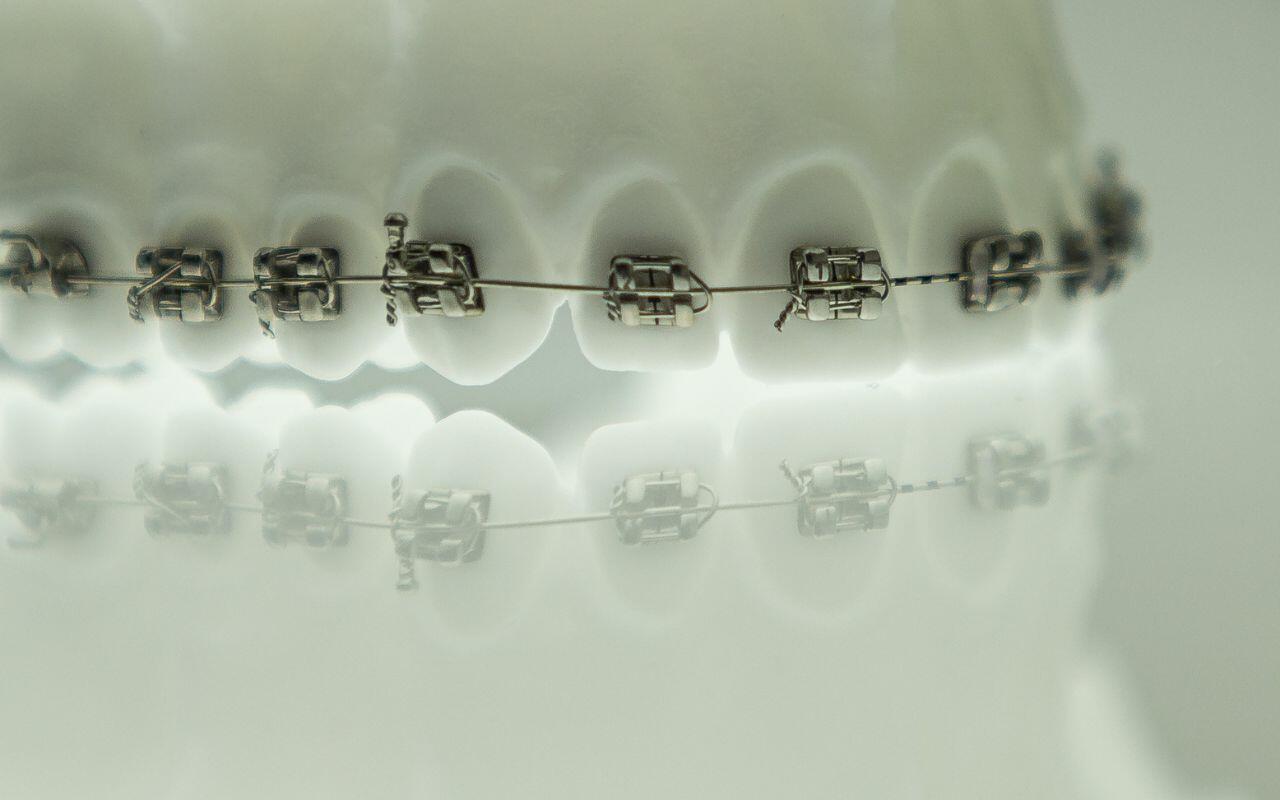
Braces are an orthodontic treatment that helps correct problems such as crowding and gaps, as well as crooked or misaligned teeth. Braces are applied to your teeth and consist of a series of brackets and wires. They put pressure on your teeth to slowly move them into their ideal position. Braces also use pressure that changes the jaw and allows not only the teeth but the teeth roots to move.
What Is Invisalign?

Invisalign is another form of orthodontic treatment used to ease teeth into their ideal position. This treatment uses a series of clear “trays” that are changed every few weeks. Each tray has a slightly different mould that slowly moves the teeth into place.
Dental Problems Corrected With Braces Or Invisalign
How Invisalign Helps With Mouth Issues
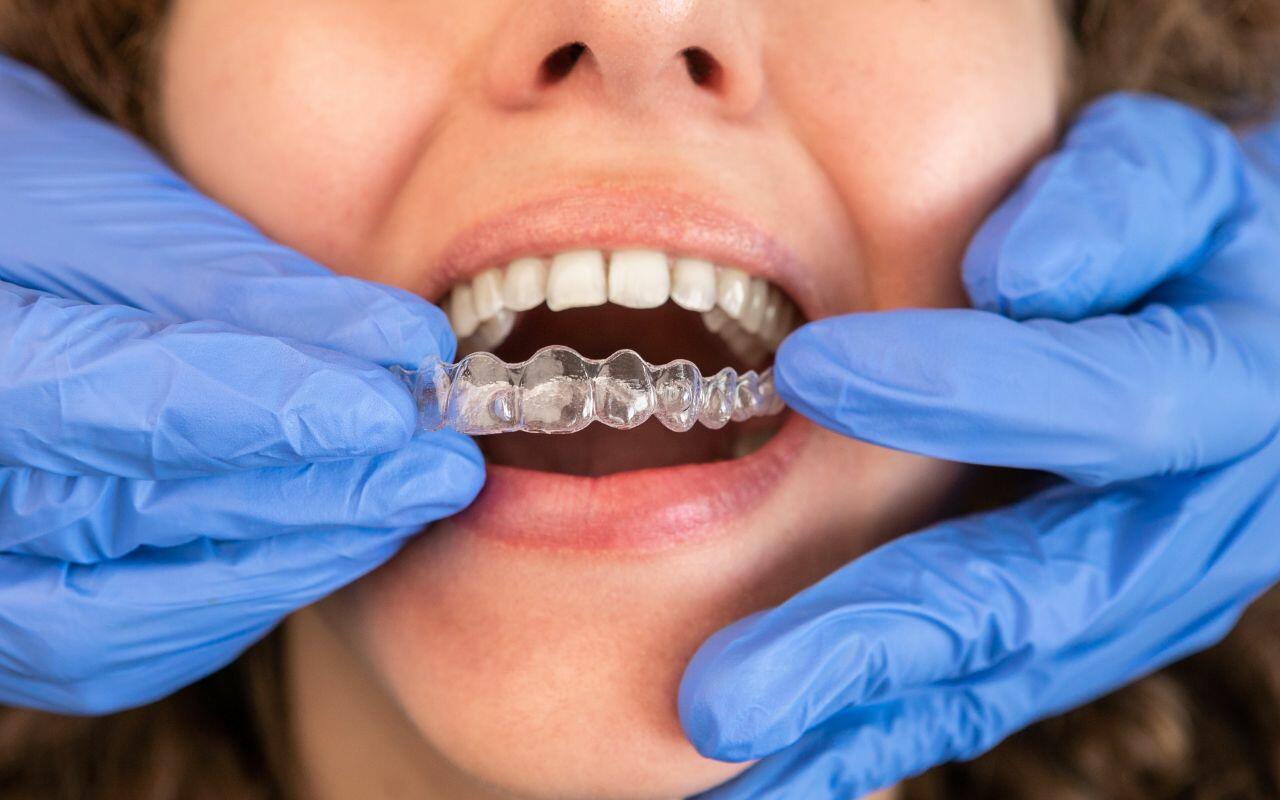
Invisalign can be used to create a more uniform appearance for your smile. However, Invisalign is also used to treat the following dental issues:
- Teeth grinding
- Periodontal disease
- Tooth mobility
- Abfraction legions
- Bite
Your dentist will discuss your issues and decide if Invisalign is a good option for your treatment.
Braces For Jaw Misalignment
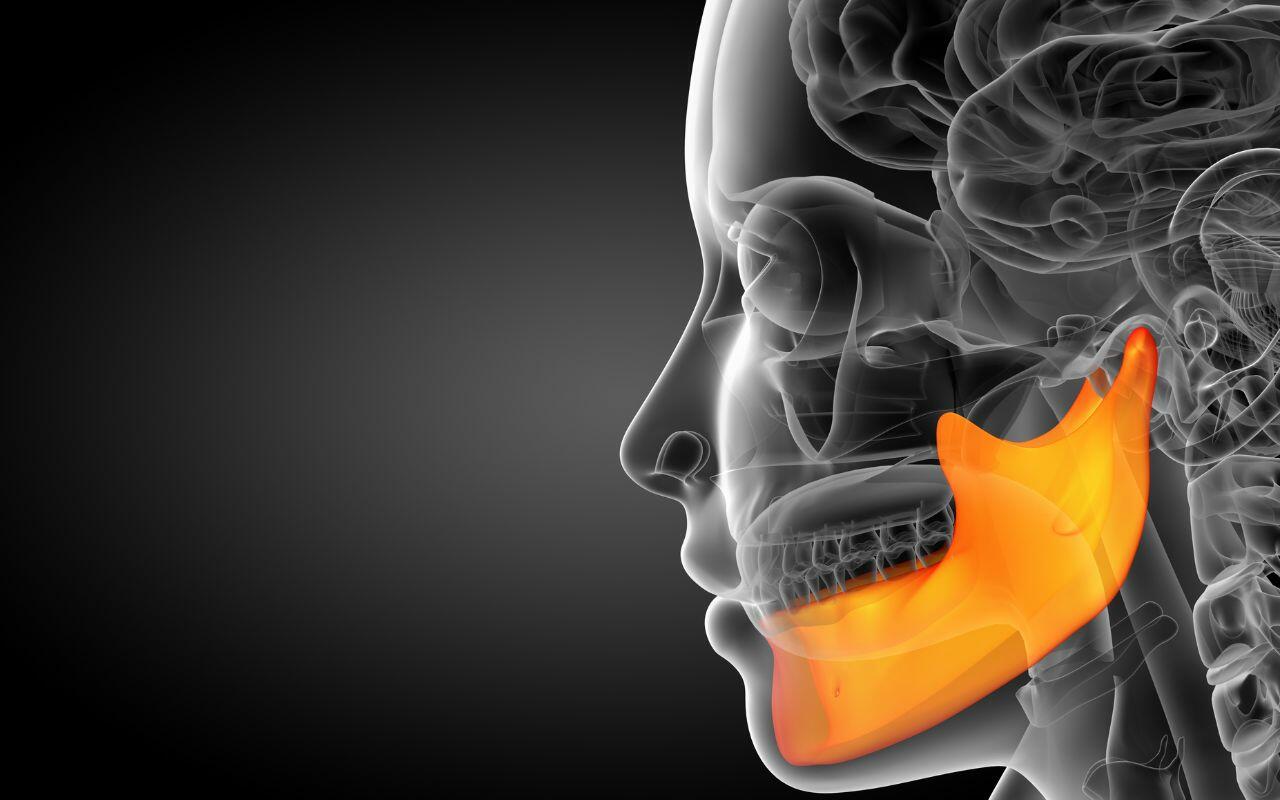
An uneven bite often leads to a misaligned jaw. This can result in issues with discomfort or outright pain in your jaw. If the misalignment isn’t treated, it can lead to more painful issues related to your temporal mandibular joint (TMJ), called TMJ syndrome. This leads to extended pain that affects your face, neck, and head, with the possibility of other complications. Orthodontic treatment straightens the misalignment so your jaw is in the right position. This, in turn, improves facial structure and, for many, creates more symmetry in their appearance. Your symptoms are relieved, and you can enjoy a better quality of life.
Over, Under And Open Bites
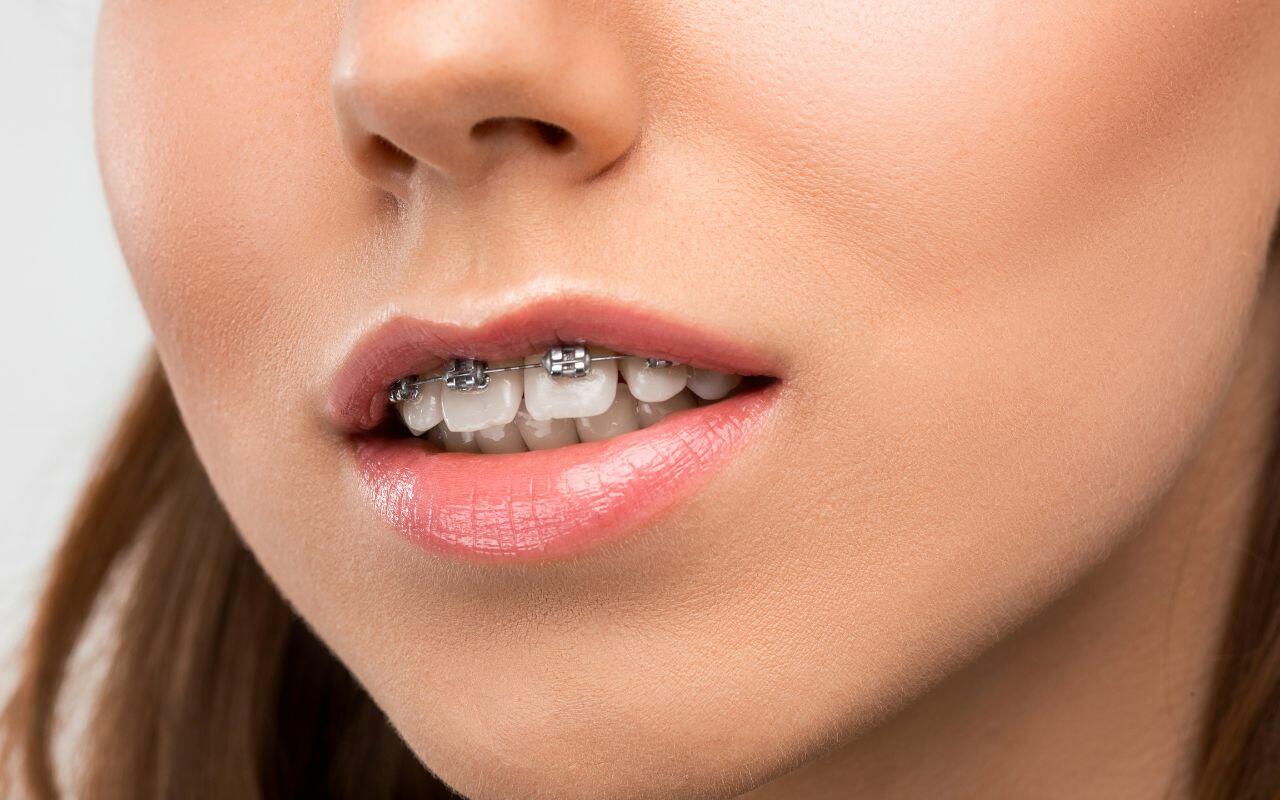
Bite issues are referred to as malocclusions that can be over, under or open bites. Braces and aligners can apply pressure to the jaw and teeth to help treat these malocclusions. Bite and mouth issues that can be fixed with braces include:
- Overbites: Overbites are recognized by an extension of the upper jaw, which creates chewing issues while also making your chin appear smaller or “sunken.”
- Underbites: As you can guess, an underbite moves the jaw forward, which also interferes with proper bite and chewing.
- Open Bites: This is not formally known as a malocclusion, but it can be just as troublesome as an over or underbite. Open bites tend to occur from thumb or pacifier sucking, which creates a larger space between the anterior upper and lower teeth leading to bite issues.
Gum Issues
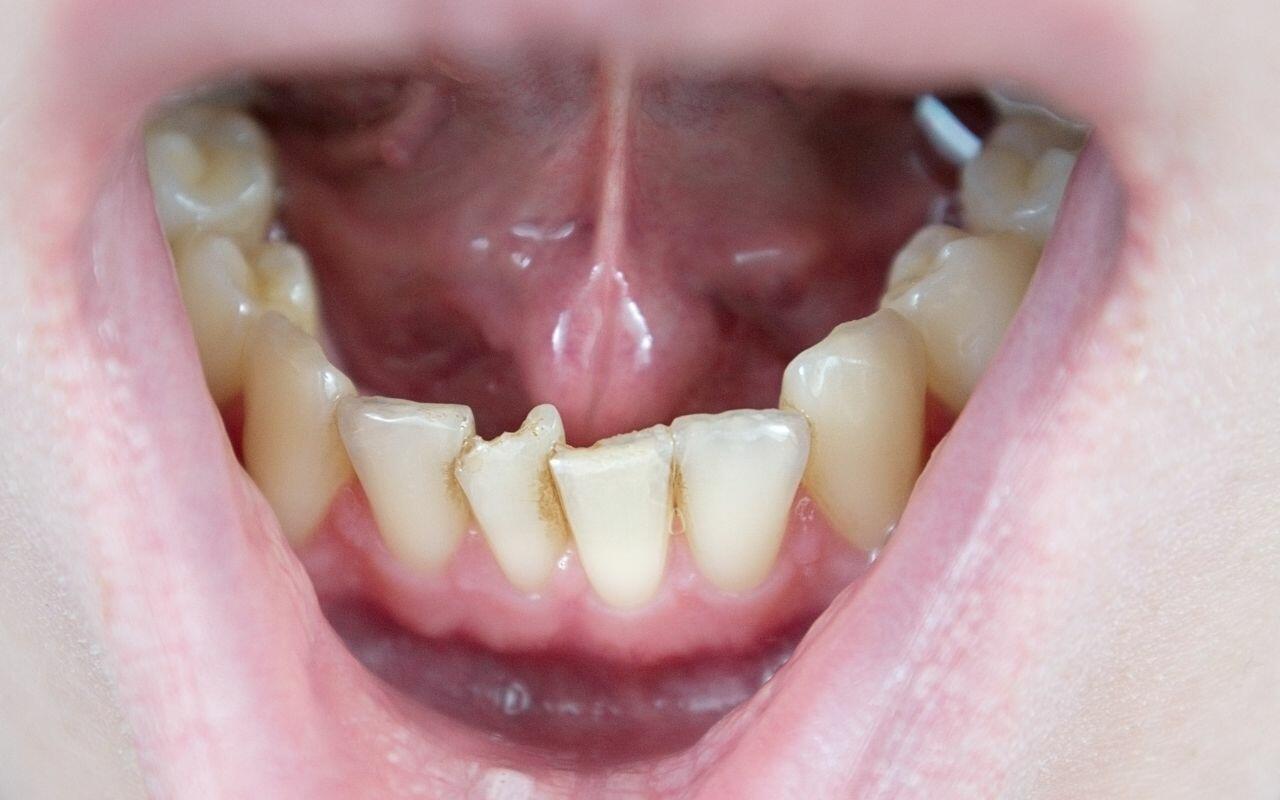
It might seem misaligned teeth wouldn’t impact your oral health other than the appearance of your smile. However, if your teeth are severely overlapped or very tight together, it interferes with proper oral health. Brushing and flossing become less effective because you can’t get at the plaque stuck between these tight spaces. As a result, you can develop gum disease. Braces or Invisalign can provide healthier gaps between teeth so you can achieve optimum oral health with easier brushing and flossing. As a bonus, you also get a perfect smile.
Mismatched Dental “Midlines”
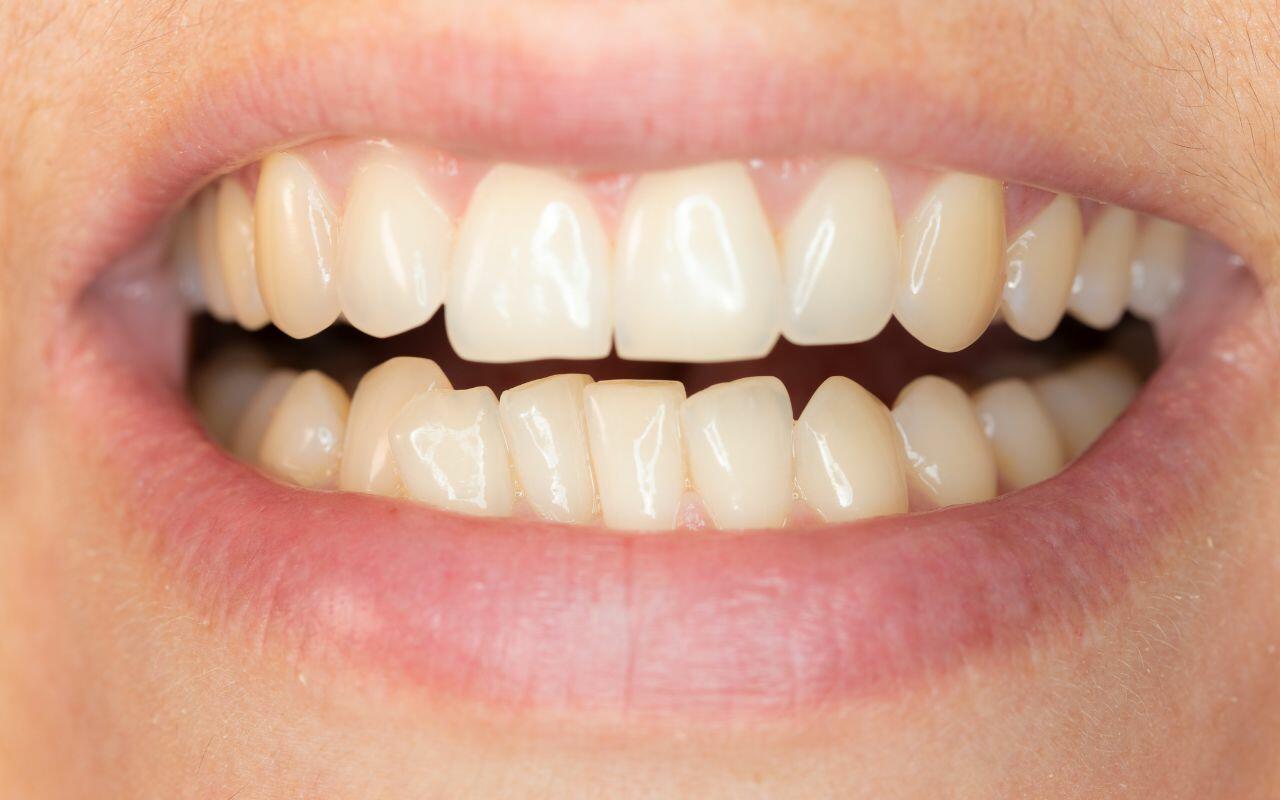
Our bodies have a “midsagittal” line that visually splits our bodies into two equal halves. This includes the upper and lower jaw, which has a dental midline. If the midline is mismatched by as little as a few millimetres, it impacts the position of your jaw and the symmetry of your face. Braces correct the misalignment to improve symmetry and how the cusps of your teeth fit together. This creates both a more comfortable bite, as well as a more symmetrical appearance to your face.
Chewing And Speech Issues
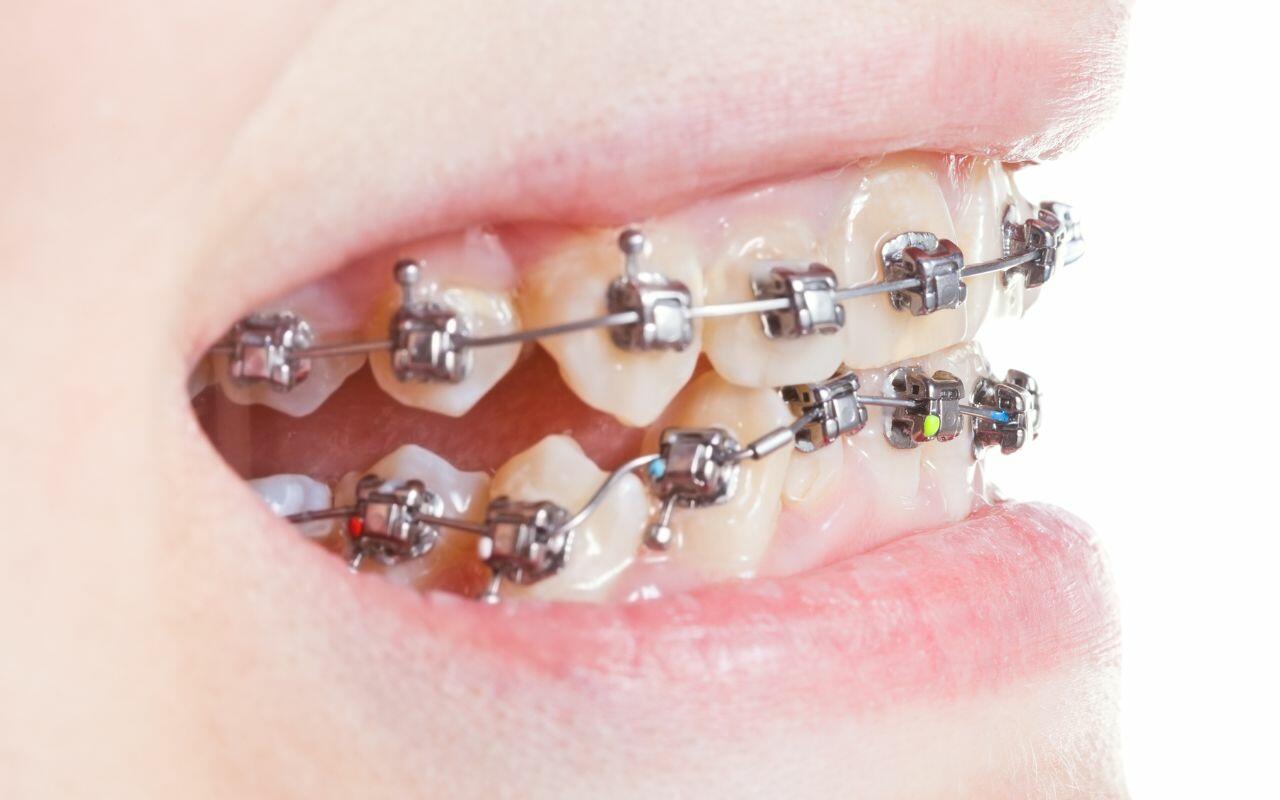
Issues such as dental misalignments, malocclusions, overcrowding, and crooked teeth all impact how you speak and chew. Many mild speech impediments can be treated with braces by improving jaw alignment. When your upper and lower teeth are in even contact, it makes it easier to chew and improves how you pronounce words and sounds.
Poor Self-Esteem
The mental health impact of imperfect teeth can be devastating. If you suffer from poor self-esteem, it can lead to issues with your ability to socialize. You might feel self-conscious when you laugh and smile and choose to avoid doing so in public. This can make you look unhappy or that you don’t have a sense of humour. People might find you seem less approachable, making it difficult to meet new friends. Poor self-esteem impacts all aspects of your life, making it more difficult to speak up in school or at work.
As a result, your grades or ability to move ahead in your career can be jeopardized. Braces or Invisalign can provide you with the perfect smile you’ve always wanted. You can regain your confidence and avoid feelings of isolation or missing opportunities to meet your goals. If you are too self-conscious to wear traditional braces, Invisalign is the perfect solution, as they are clear aligners that are barely noticeable.
Now that you know how braces can help avoid these dental problems, it’s time to speak to your dentist. Be sure to ask about orthodontics if you feel you suffer from any of these issues. Parents should take action as soon as possible to ensure their children don’t suffer from more serious issues as adults. Whether you want a perfect smile, suffer from jaw pain, or have difficulty chewing or improper speech, a consultation with your dentist is the first step to receiving the treatment you need for the healthy smile you deserve.
If you have dental issues that braces can fix, call today to schedule an appointment at 905-775-5307, or click here to request an appointment.
